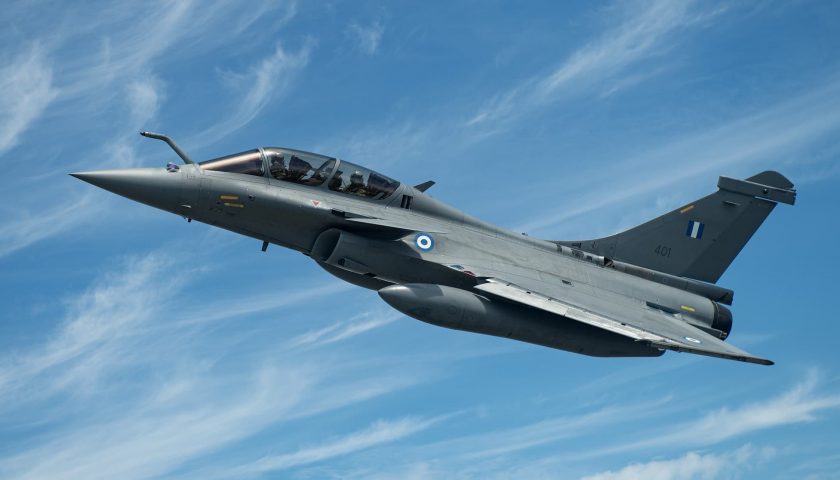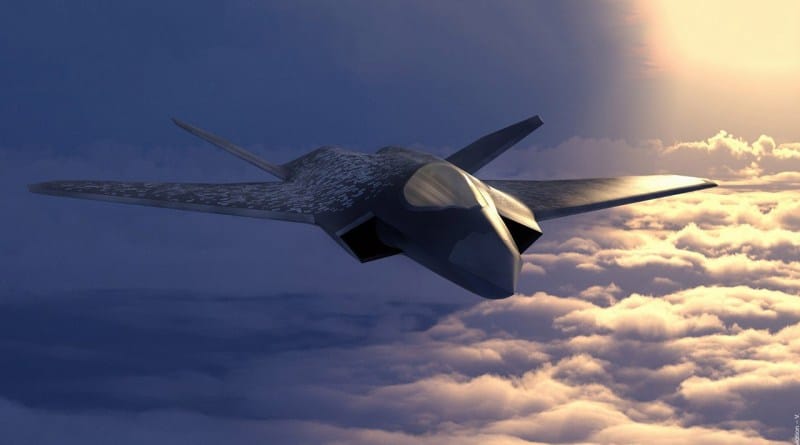Announced in 2017 by Emmanuel Macron and Angela Merkel, the FCAS program for Future Air Combat System aims to develop, by 2040, a new generation combat aircraft (the 6th at the last count), the Next Generation Fighter, as well as a a set of systems designed to provide the aircraft with unparalleled operational capabilities. Since its launch, the program has found itself on several occasions faced with major difficulties, whether related to political arbitration and in particular to the requirements of the German Bundestag, to the difficult industrial sharing between the 3 participating countries (Germany, France and Spain) and the conceptual and doctrinal differences between the armed forces of the 3 countries. However, the FCAS had never found itself faced with an impasse such as the one that strikes it today, when the CEO of Dassault Aviation announced that he no longer intended to negotiate with Airbus DS on the subject of the first pillar. of the NGF program, and that he was now waiting for a political arbitration to continue the program, knowing that the difficulties already encountered had already postponed the entry into service of the device by 5 to 10 years.
By choosing this posture, Dassault Aviation clearly means that it is now up to Emmanuel Macron, initiator of the program, to get Berlin, the Bundestag and Airbus DS to renounce their demands for co-piloting of the first pillar, failing which Dassault Aviation would withdraw from the program, knowing that with its full order book after the recent international successes of Rafale, and its capital autonomy vis-à-vis the State, the French aeronautics group has more time to wait than Emmanuel Macron, the French Air Force and the French Naval Aeronautics. However, this fierce standoff which is taking place is only the final consequence of a program marked by significant differences, in particular between Paris and Berlin, at the origin of a climate of mutual suspicion between the two partners, and increasingly firm and incompatible postures promising the FCAS a dark destiny; one more, we would be tempted to say, as the list of aborted or stillborn European defense cooperation programs is so long.

Under these conditions, it seems difficult to imagine a future for this program. It is true that on the simple analysis of the deep divergences and antagonisms which have emerged in recent years around it, the solutions which would allow the FCAS to be refounded on healthier foundations are far from obvious. However, once we study the very causes of these impasses, a solution could emerge. Indeed, rather than trying to force cooperation between industrialists on unstable and ill-defined bases, it would be much more effective to focus attention on their causes, in this case the deep divergences which oppose the expectations of Berlin and its Luftwaffe, and Paris, its Air and Space Force, and its Naval Aviation, namely that Germany intends above all to develop a successor to the Typhoon, a high-performance air superiority fighter capable of flying high and fast, while for France, it is a question of replacing the Rafale, a multi-purpose carrier-based fighter capable of carrying out deep nuclear strikes. A superficial reading of these two specifications could conclude that they are incompatible. However, this would quickly forget that a combat aircraft is not just an airframe, but a system of systems, and that these two needs can rely on numerous common systems. In other words, to save FCAS, it would be appropriate to move from a program based on a system of systems, to a Program of programs sharing a common system of systems.

75% of this article remains to read,
Subscribe to access it!
The Classic subscriptions provide access to
articles in their full version, and without advertising,
from 6,90 €.
Newsletter subscription
Register for the Meta-Defense Newsletter to receive the
latest fashion articles daily or weekly


[...] which oppose the expectations of Berlin and its Luftwaffe, and of Paris, of its Air and Space Force, and its Naval Aviation, namely that Germany intends above all to develop a successor to the Typhoon, a high-performance air superiority fighter capable of flying high and fast, while for France, it is a question of replacing the Rafale, a multi-purpose carrier-based fighter capable of carrying out deep nuclear strikes. A superficial reading of these two specifications could conclude […]
[…] the Future Air Combat System, or FCAS. The fact is, since the beginning of the year, the program bringing together Germany, France and Spain has been on hold, against a background of disagreement between Dassault Aviation and Airbus D&S regarding the industrial sharing […]
[…] even political, there are hardly any voices today in France or Germany to hope that the Future Air Combat System program, or FCAS, will come to an end. Even the French Ministry of the Armed Forces, the voice of European cooperation ambitions and […]